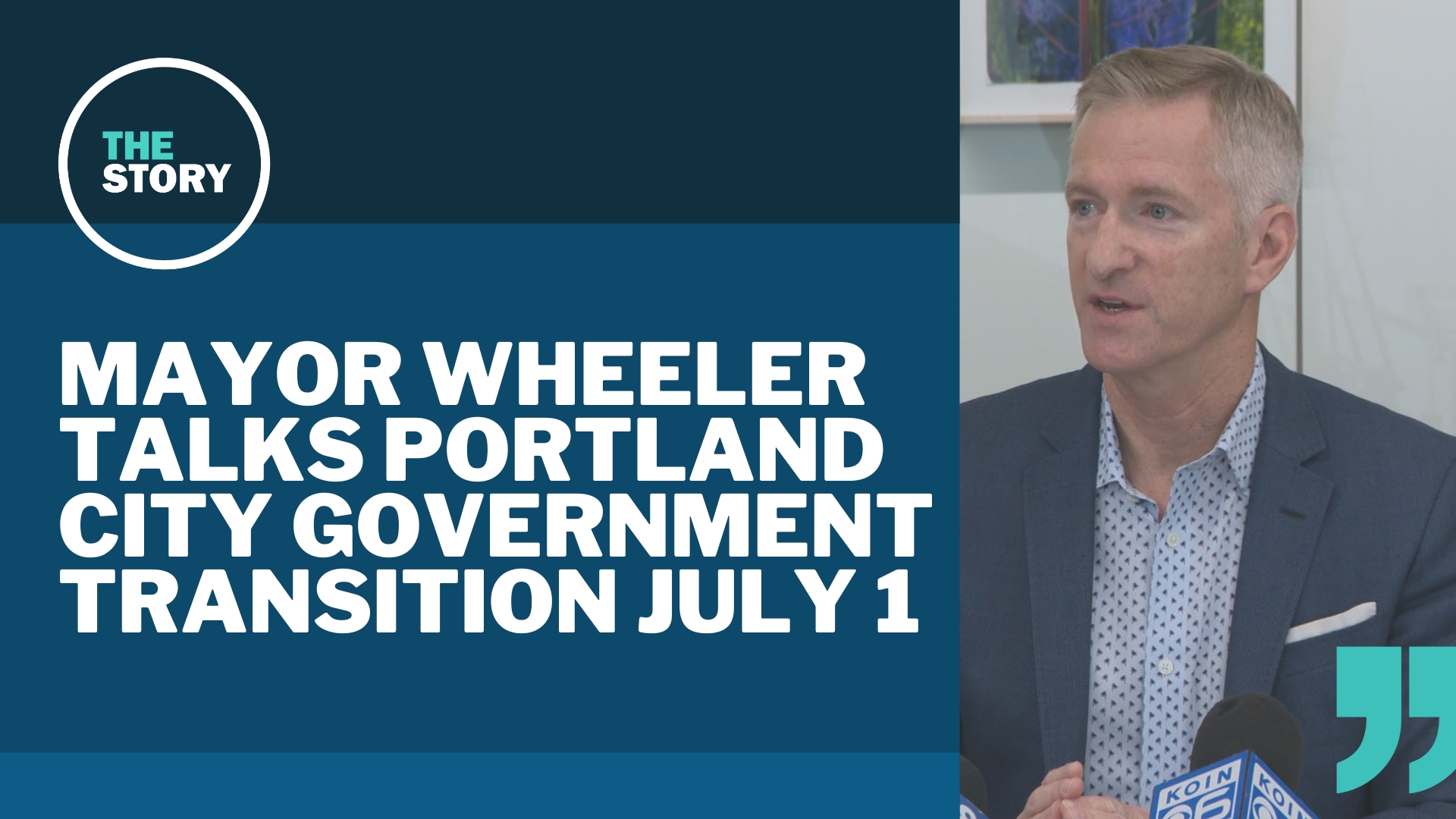PORTLAND, Ore. — Portland Mayor Ted Wheeler held a press briefing Tuesday to introduce the soft launch of a new city government structure, now just 13 days away. With him was Michael Jordan, the city's interim city administrator and the man now saddled with seeing the transition through.
Under the new system, Portland will have a city administrator helming the oversight of the whole bureaucracy. That's what voters approved back in 2022 when they carried a measure containing major reforms to the city charter.
While all of the changes mandated by charter reform officially take effect January 1, 2025, the city has picked July 1 — the beginning of a new budget cycle — to begin a dry run of the new form of a government, an attempt to work out some of the kinks.
By next year, Portland's expanded city council will focus entirely on policy instead of heading bureaus. The city administrator, along with six deputies, will run the bureaus and report to the mayor.
RELATED: Portland City Council triples in size next year, taking on an entirely new role in local government
Proponents believe that the new system will eventually allow Portland's government to become more streamlined and efficient, as city workers within the various bureaus increasingly cooperate and work as a united government.
At Tuesday's press briefing, Wheeler said he hopes that the current city commissioners will shift their attention to helping residents with issues in the meantime, something he calls "constituent services."
"The way constituent services will now work is that people will call either the bureaus through the help lines that are currently established, or they may reach out to an individual commissioner and say, 'Hey, we have a problem located over here in our neighborhood, and we really need help,'" Wheeler said. "The commissioner then can choose to either turn that issue over to the deputy city administrator (DCA) and the interim city administrator, or they could choose to help lead on that project — meaning they would continue to advocate for that constituent who has called and asked for service ... they would work with me, they would work with Michael (Jordan), they would work with their DCAs to troubleshoot those issues. So we really want to increase our efforts around constituent services."
With commissioners now theoretically more hands-off with the running of the bureaus, Wheeler having essentially rescinded their assigned portfolios, they will have much more time on their hands to attend these sorts of issues — at least, that's the idea.
Wheeler echoed something that Jordan has said previously: he believes the effort to break down walls between city bureaus will speed up the wheels of bureaucracy.
"I think you're going to see more collaboration and quicker response to issues, like specific areas around homelessness. There are some neighborhoods, for example, that have a lot of RVs currently in place. I think we'll be able to more quickly coordinate the Parks Bureau with the Transportation Bureau, with the Impact Reduction program, with our folks at the Portland Environmental Management office under the executive branch, than having to work with multiple commissioners' offices who oversee different vertical sleeves to make it happen," Wheeler said.
"We've done a pretty good job as a council — and I want to be clear: this is not a criticism of the council — I think we've done a really good job of organizing, but I think it'll be easier, faster and better under the new leadership, and perhaps Michael has some ideas as well," he said.
For his part, Jordan wanted to stress that this is a monumental shift from how Portland has done business for about a century. However, it's likely a good one.
"We are changing from what is an anomaly across the United States to what is a normal operating city government in the United States," Jordan said. "Whether it's a mayor-council form, a strong mayor form or a council-manager form, we are moving toward that kind of an operation. It's gonna be new for us, and I've said this before: Changing boxes and lines on an org chart does not change culture. It does not change human behavior instantly. That will take time."
Wheeler is not running for any seat in the new government this year, meaning he has just six months left to affect any change. That means, according to him, that he's focused on being a steward for these reforms and the work that the Portland City Council has already done.
"My hope is that we institutionalized the projects and the programs that this council has funded that are showing great promise," Wheeler said. "Whether it's the Portland Environmental Management office to clean up litter and graffiti, I want that to continue to exist in the new form of government; whether it's the expansion of the Impact Reduction Program to keep our public right of ways clear, I want to make sure that that's initialized; whether it's the Portland Solutions Program that coordinates all of these different programs that we established, grew or created through executive directive — like the Street Services Coordination Center, the litter and graffiti abatement, the campsite clean-up for problematic camps, and the connections to (Safe Rest Villages) to connect people to services to help them get off and stay off the streets — I want to institutionalize it so that when I'm gone and my team is gone and potentially the majority of the current city council is gone, that these programs and projects that show great promise are institutionalized."

